|
This Advent is very special for three reasons. First, my son, who will be two in January, will be experiencing the lights, the beauty, and the gift of Advent in a brand new way this season and I’m so happy to share that with him. The second is because every year I teach about Advent to my class of PreK students, but because I’m really looking forward to it, I think I’ll be able to bring that joy into the classroom with me more than ever. Finally, this year in Advent I will be trying to intentionally do work in the service of others and helping where there is an imperative need. This year, I’m hoping to get caught up in the magic and in the giving and also appreciate the beauty of the season rather than waiting impatiently.
On the first Sunday of Advent, I went to Mass with my son and husband, along with another family with two young children. For the first half, my toddler was overwhelmed with excitement about the tree in the back filled with tags for people who need wrapped gifts for Christmas. He kept taking the tags off and swapping out one for another, screaming in joy about the whole thing while the congregation listened to the readings. After some quieting down, we went back into the pew with his little friends. As we knelt in prayer, I was overcome with emotion and gratitude between my husband and son. But the moment that really helped me see through the eyes of a child was when we walked up for Eucharist and my son noticed the purple at the altar, and the four candles with one purple one lit. He pointed and said, “Candle!” and in that moment I knew we would have such a joyful season of Advent. I invite you to notice something brand new about the lights, beauty, and hope that Advent brings to us all. Hope, Peace, Joy, and Love are the four weeks that bring us closer to Christ and prepare us for His coming. We can use this time to reawaken our hearts and see Advent all fresh and new, especially through the gentle ways of children! In my PreK classroom, the children love holidays and especially look forward to Christmas. So many learn about Christmas and Advent for the first time in my class, and that is a really special opportunity for me as their teacher. Already this year, one student shouted, “Presents!” as we were talking about Thanksgiving, and I had to clarify the confusion between the holidays. Then, it struck me, isn’t that how it works sometimes? We want to skip right to something fun that might be in the more distant future instead of appreciating the celebration that might be happening right in front of us. Advent is this same phenomenon. We’re worried, anticipating, and anxious about one day every year, but if you consider that every day in Advent can be a celebration of the Season, it’s really like we have a whole month of Christmas! There is so much we can do for others in this challenging world right now and there are many in need of our help. Winter is cold and this year has already been chilly: there is a lot we can do for our Sisters and Brothers in Christ during Advent by sharing in joy, distributing resources, praying for those sick or in need, or offering kindness. In 2018, Pope Francis said, “Advent invites us to a commitment to vigilance, looking beyond ourselves, expanding our mind and heart in order to open ourselves up to the needs of people, of brothers and sisters, and to the desire for a new world." Advent is a time for service, here are some examples of helping others during this time of giving:
Whether you look at Advent through a child-like perspective, find joy in the daily celebration, or assist those less fortunate this Season, do it all with intentional preparation for Christ’s coming on Christmas. I’ll be busy getting caught up in the magic and beauty too! Happy Advent! Click here for more resources on Advent. Click here for more resources on the Works of Mercy.
0 Comments
“Why are you standing there?” The angels who spoke these words to the astounded disciples now turn to ask us this question today. Perhaps, like the disciples after the Ascension, we too have been stuck looking up at the sky, wondering where Christ is. Our answers to the angels’ question are probably very legitimate. “I am standing here because of the pandemic, because I lost my job, because of isolation, because of sickness, because of racial discord, because of people’s differences, because I don’t know what else to do.” In this passage from today’s Gospel reading, which is the same as this upcoming Sunday’s, I remind myself that at least the disciples were looking up. They at least had their eyes fixed on Christ. That, in and of itself, is a good thing. But what God wants to convey through the angels after Jesus’ Ascension is that just seeing Christ or believing in him is not enough. A relationship with Christ results not in paralysis, but in action. “You will be my witnesses,” Jesus tells his disciples moments before he ascends to the Father. And it is by living out our relationship with Christ as witnesses that the world comes to know him and that our faith comes alive. Witnessing to our faith and accompanying others on their faith journeys shake us out of our paralysis and help us overcome our fear. Jesus is not conveying that hardship, suffering, or unrest will be absent from our lives, but that these no longer have the power to paralyze and trap us. His Resurrection has changed the narrative. And as the Easter season comes to a close, Jesus is calling us not only to believe in him, but to act— to have our lives transformed by the knowledge of the Resurrection and to live boldly and faithfully as a result. At this point, however, the disciples are still focused on earthly things. Just before Jesus’ Ascension, they ask him, “Lord, are you at this time going to restore the kingdom to Israel?” Many of us have similar questions. “Lord, at this time will I get my job promotion? As this time, will my addiction be healed? At this time, will the pandemic end? At this time, will our family be reconciled?” These are valid, important questions of the human heart. Questions that long for answers, for resolutions, for miracles. Jesus’ response seems mystifying and even unrelated: “You will receive power when the Holy Spirit comes upon you, and you will be my witnesses.” While the disciples are still caught focusing on the restoration of Israel and victory over their oppressors, Christ promises more. So much more, in fact, that they are unable to grasp it without the gift of the Holy Spirit, whose coming we celebrate on the Feast of Pentecost on May 23rd. It is why Jesus chose to ascend at this time. He had spent 40 days teaching and opening the Scriptures to his disciples after his Resurrection, but they still could only fathom human goals and objectives. Jesus knows his ministry has come to an end and that a new chapter of the Church will begin with the promised Advocate, the Holy Spirit. After he answers them, Jesus compels his disciples to look up to the heavens as he begins to ascend to the Father. He is physically showing them the needed disposition of their hearts and minds in order to receive the Holy Spirit: they should be considering heavenly things and a heavenly goal. But then, moments later, they are startled to hear: “Why are you standing there looking at the sky?” It can be tempting at times to separate ourselves from the reality of the here and now by over-spiritualizing things or being preoccupied with the past or future. The disciples are left looking up (very understandably), but this looking up and clinging to Jesus in his physical form distracts them from the action to which he has called and chosen them: to be his witnesses to the ends of the earth. This balance between living in the world but not of it can be difficult to grasp and practice. It’s important first to consider where you find yourself today. Are you asking the Lord to restore the kingdom to Israel? Are you standing looking at the sky? Many of us are somewhere in between. Below are 6 practices that help ground me in Christ and deepen my ability to witness to his love:
By considering these practices, it is my hope that, renewed by the Holy Spirit at Pentecost, we will enter into Ordinary Time ready to be Christ’s witnesses to the ends of the earth. Christ calls us each to so much more than simply remain standing. For more resources on living as missionary disciples, please click here.
This coming Sunday, to close out the Easter Octave, we will celebrate Divine Mercy Sunday. Devotion to Divine Mercy started with St. Faustina in the early 1900s and Divine Mercy Sunday became officially recognized by Pope John Paul II in 2000 along with the canonization of St. Faustina. Growing up, I would hear a homily about the image of Divine Mercy every Divine Mercy Sunday, but it wasn’t until I was introduced to the Divine Mercy Chaplet that I began to understand more about the overall message of Divine Mercy.
The Chaplet of Divine Mercy is a devotion that was started by St. Faustina from her visions of Jesus. It is a series of prayers that can be said on rosary beads, albeit usually much quicker than a rosary, that is especially connected to Divine Mercy Sunday. What particularly strikes me about the Divine Mercy Chaplet is how many of the prayers end with “us and the whole world.” Both the Eternal Father prayer, the prayer said on the “Our Father” beads, and the prayer said on each of the “Hail Mary” beads ends with this emphasis on “us and the whole world.” I began to understand what Divine Mercy meant when I thought about mercy not just in terms of myself, but about the whole world, both my closest friends and people I had never met. The message of Divine Mercy is that through the mercy Jesus shows us, we are called to be merciful and in harmony with all of our brothers and sisters throughout the world. Our inward journey of mercy ultimately leads us outward to living a merciful life. For me, I am reminded of the Beatitudes and the call for everyone to be merciful, peacemakers, and more (Matthew 5:3-12). However, I have found myself struggling with how I, a college student, can live out this mercy to the “whole world.” How can I show mercy to the “whole world” during the COVID-19 pandemic when we cannot travel? These are some of the questions I find myself grappling with when thinking about how to live out a life of Divine Mercy. When I think about Divine Mercy, I think about God’s abundant love for us and how we are called to share that love with all our brothers and sisters. In that, I mainly think about community service opportunities I have had while in college to go on both service and justice immersion trips around the country, as well as locally in Washington, DC. But I also thought about doing little acts of service throughout the day. I think just as we can do little acts of service throughout the day, we can do little acts of mercy to spread a consistent ethos of mercy. As Mother Teresa is attributed with saying, “we cannot all do great things. But we can do small things with great love.” In my daily life, I have learned that there are many ways that we can treat people with mercy and love, bringing the ethos of Divine Mercy to our daily lives. A lot of this includes little things, such as: not getting upset when the cafeteria food takes twice as long as normal to be made, receiving and giving criticism in group projects and assignments with love rather than having an attitude of superiority, and being adaptable and understanding when situations change, especially with COVID-19. Over the years I have seen some commercials advertising “pass it on” campaigns in terms of good deeds, but I think that idea also applies to living in a merciful and loving way. Our mercy spreads to the “whole world” through us being merciful to someone who is in turn merciful to many more people. As we approach and celebrate this Divine Mercy Sunday, let us think about ways that we can live a life of Divine Mercy every day. “Extend your mercy towards others, so that there can be no one in need whom you meet without helping. For what hope is there for us if God should withdraw His Mercy from us?” – Saint Vincent de Paul (attributed) To learn more about the corporal and spiritual works of mercy, please click here.
I am grateful for the occasion to share just a few reflections on my discernment journey and priestly ordination during the pandemic, the “COVID class” of 2020! It was about one year ago—March 2020—with less than two months before graduation from St. Mary’s Seminary in Baltimore, MD and ordination scheduled for June when those plans began to change. Like the many high school and college students preparing for graduation, my deacon classmates and I (and the rest of the seminary) were sent home to complete our coursework alone online. Like the many engaged couples preparing for their summer weddings and receptions, our priestly ordination dates were postponed and receptions cancelled. While trusting in God’s grace and purpose, how could I help but feel at least a little disappointed and even frustrated? And yet, therein lie some important lessons God wanted to show me about the life we are each called to live. Every vocation—life’s path and purpose—begins by accepting our way is not always God’s way, and our time is not always God’s time (Isa 55:8-9). And yet, I’ve slowly recognized a great freedom in that fact. A vocation is not about “planning out” your life, or making sure things happen the “right” way. Life does not follow a predetermined script. A vocation is not an intellectual puzzle we work on and hope to “figure out” (or else fail…), but a stepping out in faith day-by-day. Vocation is more about letting go of the controls to be free enough to move in the direction God beckons. A vocation is always a dynamic response to God’s call from a place of freedom and love. And so, while a vocation does involve making a free choice, it’s not about calling the shots in life or predicting the future, but trusting God with the simple question, “where and what next?” Due to the COVID lockdown of 2020, I realized the date and circumstances of my ordination were beyond anyone’s control. Some suggested having small, private ordinations so we would become priests “sooner,” even if we still couldn’t yet go out and serve in parishes, but respectfully, I personally disagreed with that idea. The pandemic re-affirmed my conviction that we were becoming priests for the people of God, not for ourselves. Compared with the physical and emotional toll of the pandemic, the waiting game was an easy burden to bear. The background of the pandemic created a new context to reflect on what shape my life and ministry might take. In our society’s fixation on “finding our best selves,” the gospel-centered vocation acknowledges that “whoever loses his life for my [Jesus’] sake will find it” (Mt 10:39). Vocation is part of our personal participation in the great “mystery of faith,” the “Paschal Mystery” of Christ’s death and Resurrection the Church celebrates most powerfully in Lent and Easter. We cannot experience the true Jesus without both his Resurrection and Cross, and so every authentic vocation will have both its cross (struggle and sacrifice) and its resurrection (joy and victory). However you discern, expect your vocation in life to feel like both at times. Amidst the hardship of our world, a small taste of the patient suffering of the Cross leading up to my ordination turned out to be a small but precious gift not to take for granted. For months during quarantine, I watched medical professionals and other essential workers care for the sick and deliver basic needs—the corporal works of mercy—on the local, national, and international stage. As a deacon waiting in the wings to be deployed to a parish, I felt primed to be sent and make an impact. But all I could do was stay home and pray the Liturgy of the Hours. That summer I did not feel heroic or “essential.” Having been fed a steady diet all through seminary of “the Church needs you!”, I had to accept it wasn’t my moment to be a hero or an influencer. My call was behind-the-scenes mission support, not leading the charge on the front lines. Following Jesus’ instruction to “watch and pray” (Mt 26:41) as others experienced trial and suffering in hospitals and homes challenged me to rid myself of any pretensions of being a priest as being God’s biggest hero. Vocations—religious or secular—motivated by the muscular desire to save the Church/world and solve Her problems almost always end up hurting people in strongarmed attempts to fix whatever they perceive as broken. Before the Cross, there are times all we can or should do is “behold” the brokenness and hurt (Jn 19:26). On the eve of ordination, that forced inactivity was excruciating, but it also drove home a humble admission behind every vocation: I need God more than God needs me. The Cross is essential to Jesus, and beholding Jesus in the sick and suffering, God became more essential to me. To “behold” is not to evade responsibility, but to see that our suffering does not go unnoticed and unredeemed. Not coincidentally, it is on the Cross that we truly see Jesus as our eternal High Priest, the model of priesthood, who is willingly sacrificed for the redemption of our sins. And so, the experience of being ordained a priest during the pandemic, while full of spiritual and personal challenges, also became the occasion for greater reflection on my identity, vocation, and mission. The delay was not lost time, for any time spent with Christ in prayer or service is only counted as gain. I was ordained a priest of Jesus Christ on August 22, 2020. Behold and follow the Cross, and who but God knows where it may lead! For more resources on Vocational Discernment, please click here. For more resources to accompany you through the COVID-19 pandemic, click here. This has been a year of waiting. Waiting for the pandemic to end. Waiting for results of a COVID test. Waiting to figure out if and when we can go back to work. Waiting to see our friends and family. Waiting for our sourdough starter to be ready to bake. Waiting to celebrate important life events. Waiting to have a graduation or to get married. Waiting to memorialize a loved one who has died. Waiting for a vaccine. Waiting for everything to go back to how things were before the pandemic hit. And here we are, this Advent season, waiting. Waiting and preparing for the coming of Christ at Christmas. Waiting, as John the Baptist did in the Gospel. He knew what was coming; he knew that Christ was going to follow him. Our waiting for Christ is a hopeful waiting. A joyful waiting. While we do not know when the pandemic will end, we know that Christ will come to us at Christmas and we know that Christ will come for us at the end of time. We should relish in that joyful waiting while we continue to wait for some semblance of normalcy to return to our daily lives by finding moments of light, of peace, and of personal growth. Focus on Social Justice: This Gospel encourages us to look beyond the current situation to what is to come. In the current pandemic, we are called to do something for those around us and for our world. We can do acts of charity by wearing a mask, social distancing, staying home when we can, picking up groceries for an elderly neighbor, making dinner for someone who is sick, reaching out to a healthcare worker we may know to see how we can help them, and supporting local business. Prayer: Good and gracious God, we know you are with us in our waiting. Help us to be patient in our time of waiting. Help us to trust in you and your great plan for our lives. Help us to find joy in our time of waiting, both in Advent and in the current world situation. Help us to find peace in our time of waiting when it becomes too much to handle or is overwhelming. Amen. Service Suggestion: This week, I challenge all of us (myself, included) to focus your energy of service on yourself in an act of self-care. Self-care is not selfish behavior. It is a way, especially during these trying times, to be able to put our best selves out into the world, to our families, to our friends, to our colleagues, and to those who serve. Take a few moments this week to do an activity that brings you joy, that allows you to appreciate this season of waiting and all of the beauty that comes with that. This reflection comes from the Third Sunday of Advent Reflection of the 2020 Advent Reflection Guide, a collaborative effort with the Catholic Volunteer Network. To view the rest of the guide, please click here.
“Through your infinite mercy… destroy in me all my cruelty; give me your mercy, transform me in your mercy, and let my life be a life only of works of corporal and spiritual mercy for the benefit of all.” - St. Vincent Pallotti If one goes online right now, he or she will find many uplifting posts on social media. But all too often, there are also cruel attacks aimed at one another—even by practicing Catholics. Yet, as St. Vincent Pallotti reflected on and experienced, God is infinite love and mercy. In and through our experience of God’s mercy and love, we are challenged to live both out in our interactions with others both physically and online. As St. Vincent Pallotti attested to, the Corporal and Spiritual Works of Mercy are fundamental to our growth and spiritual lives. Everyone knows there is suffering of all sorts in our world. Why would a Christian want to add intentionally to that suffering? Sometimes, this can be done unintentionally through sins of omission. As we say at Mass during the Confiteor, we ask forgiveness for “what I have done and in what I have failed to do.” Doing the Corporal and Spiritual Works of Mercy can aid us in examining our consciences. We can then seek forgiveness and mercy from God, especially in the frequent celebration of the Sacrament of Penance which helps us experience more deeply the infinite mercy and love of God. From there, we go forth witnessing to others what we ourselves have experienced. Pope Francis reminds us: “Mercy towards a human life in a state of need is the true face of love” (Angelus, July 14, 2019). Instead of causing suffering, we are called to compassion—to suffer with another. This is not easy, but practicing the Corporal and Spiritual Works of Mercy will assist us in learning and living a compassionate, merciful, and loving way of life in Christ. May we pray with St. Vincent Pallotti to be transformed in God’s mercy for the benefit of all. May the charity of Christ urge us on!
“What can I do?” The question reverberates within us while we stay home during the COVID-19 pandemic. To stay home often implies inaction, disengagement, fear. However, staying home during this unprecedented time is one of the most charitable actions we can make. To stay home is not to surrender or turn inward, but to care so much for the greater good that we are willing to make sacrifices to our daily life in order to protect our neighbor. This calls for a radical mentality shift. As human beings, we have a tendency toward action. Even on a scientific level, the world is constantly in motion. Human beings want to do something with the hands given us and the breath in our lungs. We want to act. And in times of crises, we want to help. Perhaps this is more urgently felt by people of faith; it is intertwined in our very identity as baptized persons and is a living, breathing part of our spiritual life. We live out of the reality that “faith…if it does not have works, is dead.” So during a time when one of the greatest acts of charity we can physically do is stay at home, we still find ourselves asking “what can I do?” The good news is, we can still “do” a lot. With the corporal and spiritual works of mercy as a guide, I’ve compiled a list of ten ideas for alleviating suffering and spreading the Gospel during the novel coronavirus pandemic.
There are many ways we can live the corporal and spiritual works of mercy during this outbreak of COVID-19. What are some others ways you have shared the Good News and brought love and joy to others during this time? Click here to learn more about the Corporal and Spiritual Works of Mercy. 1. Have Trust in the Lord: In every situation, Pallotti sought the will of God. Any difficult situation should not discourage us to doubt the goodness of God. That is why when Count Antonio Maria Plebani (who was staying in the region of Marche), wrote with a heavy heart about the safety of his son who was studying in Rome, Pallotti responded saying: “Let us seek God. Let us seek Him always and in all the things. And we will find Him and in Him we will all be saved.” It was the time of the cholera epidemic. The suffering was visible for everyone to see. People - the saints and the ordinary, the churchmen and the lay people – died in large numbers. Pallotti’s close acquaintances – his father, his confessor, his friends, and associates - died during the epidemic. Pallotti did not lose heart or faith. He held himself like a strong tree with a firm foundation that fails to bow down to the strong wind of suffering. The situation is not different today. There is suffering everywhere. The invisible virus seems to be all-powerful. People, even people we know, suffer and die. We especially remember our confrere Fr. Alberto Fernandez Merayo, SAC (Heart of Jesus Province) who died of the deadly Coronavirus on April 7th, 2020. Some of our members in Poland (Oltarzew) have tested positive for the virus. These incidents can shake the foundations of our faith. God seems to be silent or absent. Our prayers seem to fall on deaf ears. It is the same for lay people. People look for God and they cannot seem to find Him! When they seek answers from us, the clergy, it is difficult to try and have answers for them. In spite of everything, it is very necessary that we, especially the priests and religious, stand as solid believers believing in the goodness of the Lord. In the time of Pallotti, there was the exemplary Pope Gregory XVI. Today we have Pope Francis doing the same. He sends out the message of a pastor who is truly concerned for the faithful and who continues to battle for them with his prayers. His actions have indeed strengthened the Catholic faithful all over the world. A man of God standing firm in faith—even in the most difficult times—is the most powerful symbol. Pallotti was one such symbol for the people who sought his advice in the most difficult times of the cholera epidemic. 2. ‘Do your Duties’: Our first necessary act is to be faithful and to stand firm in our beliefs. Faith alone does not suffice. “Faith without works is dead” writes the Apostle James (Jas 2:14-17). In a letter written to Giovanni Merchetti, a married lay person and a collaborator of Pallotti, we find the following advice: “it is better to attend to one’s proper duties [in the time of the epidemic].” Pallotti seems to be a believer in the battle cry: ‘Stop whining. Start working.’ Every person is supposed to do his or her duty in all situations, especially in the difficult times. The fear of sickness can limit us with inaction. Life under lockdown can also eventually result in lethargy. However, we should not allow our spirit to be burdened. Life under lockdown amidst the sickness should not be an excuse. We are supposed to be doing our duties to the best of our ability with the limits in place. In this regard, some great examples in these times are medical doctors, selfless nurses, the numerous pharmacists, generous healthcare workers, the committed members of the staff in hospitals, the police force, the proprietors of various shops selling the necessary food, the unknown truck drivers, the service minded priests and the other Church personnel. They were acknowledged by our beloved Pope Francis when he delivered the extraordinary blessings ‘To the City and to the World’ (Urbi et Orbi) on March 27th, 2020. The world will move on and there will be hope if everyone does his or her duty. Pallotti was very much aware of this simple but a significant fact. Because of Pallotti’s hope, one of his advices for the time of epidemic was ‘to do one’s duties.’ 3. Acts of Mercy: The next area in which Pallotti directed his actions in difficult times like the cholera epidemic was to be sensitive to the needs of his neighbors. To be charitable is good, and to be charitable in the time of epidemic is better. It is best when the beneficiary can in no way repay you. Pallotti was an exemplary figure in that sense. He engaged both in the Spiritual and Corporal Works of Mercy. Spiritual Works of Mercy: As the epidemic was ravaging Rome and wreaking havoc on the physical and spiritual lives of people, Pallotti wasted no opportunity to restore and strengthen the faith of the people. To the people who sought his counsel, he reassured them that God was still in control. It was praiseworthy that people sought the will of God in everything, including in the rough times of the epidemic. To the Apostolic Secretary in Vienna, who was very anxious for his life, Pallotti assured him that he would come out of the scourge untouched. Later, when he was proved right, Pallotti wrote to the secretary to ask for pardon and forgiveness from the Lord for the moments he was doubtful and weak in his faith. That was Pallotti’s way of counseling the doubtful and strengthening the feeble minded. The people who received the instructions of Pallotti were struck by the certainty with which he pronounced his teachings. Pallotti was also on the forefront of praying for the suffering people. When the Church organized a novena in honor of Our Lady and when it decided on a barefoot procession with the icon of the Madonna Salus Populi Romani, Pallotti plunged himself completely into prayerful ministries. For instance, Pallotti organized a Triduum in the Church of the Holy Spirit of the Neapolitans with a special intention to procure the necessary graces for the people infected with cholera. On another occasion, for the votive procession organized by the Church, Pallotti tried to get as many clergy as possible to participate in the procession. That was Pallotti’s service through prayer. Pallotti also spent a lot of time in the confessional hearing the sins of the faithful, and he encouraged his fellow clergy to do the same. In the extraordinary time of the epidemic, Pallotti requested the ministerial faculties for reserved sins for his collaborators (Frs. Melia and Michettoni). That was the comforting ministry of Pallotti in the time of the epidemic. Corporal Acts of Mercy: Pallotti also had the foresight to know that the spread of the epidemic would cause many people to lose their jobs and cause financial stress on many families paying for necessities and medical expenses. This would eventually result in a great increase in the number of the poor. Pallotti had an innovative idea to help such people in need. He placed a small box in the Church of the Holy Spirit of the Neapolitans (where Pallotti was the Rector). It was a box in which people in need could drop a piece of paper with their names, surnames, the place of their residence, their parish and their particular pressing need. Later the members of the Union were sent two by two with the relief materials to the homes of the people in need. Even before the arrival of the epidemic in Rome, when cholera was already present in the port city of Naples, Pallotti had sent bread to the affected people there. Thus, we learn that Pallotti fed the hungry when they most needed food. Besides carrying food for the needy, Pallotti and the members of the Union also attended to their other needs. They carried clothing to whoever lacked and asked for it (clothing the naked). They distributed lemons, which were thought to be a powerful medicine against the cholera outbreak, to the sickly. Pallotti asked his collaborators to assist the sick in their suffering. Additionally, Pallotti was seen on many occasions walking behind a hearse for the dead with his surplice and stole (burying the dead). Today, we are called to emulate the example of St. Vincent Pallotti. If an act of charity is possible, it should be done. Everyone is called to respond to the call of charity. There is no excuse for anyone. If a person is old or sick in bed, he or she can certainly pray for all of suffering humanity and they can offer his or her suffering as mortification for the world’s sins. If a person is young and active, he or she should participate in as many of the works of mercy as possible. A priest can very well say votive masses for the end of the epidemic. A religious or lay associate can dedicate him or herself to pray for the sick and the suffering and for the medical professionals who fight the deadly virus. The priests and religious are to stay with the flock -- if and when possible, they should be easily available to assist the sick and the dying. Fr. Giuseppe Berardelli (72), a priest from the Diocese of Bergamo, is a great example of Christian service and witness. He gave up his ventilator so that a young patient could recover. Many other priests and religious have served the sick and the dying and eventually fell victim to the virus. The Church and its dedicated personnel have been at the forefront caring for the needs of the people. If Pallotti were alive, he would be walking around in the hospital wards with the necessary protective equipment assisting the sick and the dying. He also would have encouraged the members of the Union to do the same. If such action is not possible (owing to the nature of the disease and the lack of enough Personal Protective Equipment), the other acts of mercy (corporal acts of mercy) are very much feasible. There are hungry people and abandoned families around us. We need to have compassionate eyes to look at them and listen to their needs to then do what is possible. Some might need immediate nourishment; some might require medicine; some might ask for another form of help. We need to look around and recognize people’s needs and respond. Pallotti responded. As his followers, we need to walk the same path. As a summation, I would say that if St. Vincent Pallotti were alive today, seeing the ravages of the current pandemic, his exhortation for his followers would have been something in the line of the following: “Do not worry. Pray and have trust in the Lord. Do your duties. And do not forget the acts of mercy.” To learn more about St. Vincent Pallotti, please click here. For more resources on the COVID-19 pandemic, please click here. The Latin word for mercy is misericordia, which is formed from two other Latin words: “miseriae,” which means misery or suffering, and “cordia,” which means heart. One could thus say that the mercy of God draws misery out of a person’s heart. It is of the nature of mercy to therefore heal wounds. The mercy we are speaking about here is broader than the reception of forgiveness from God and granting forgiveness to others. It includes all of the spiritual and corporal works of mercy, which are also aspects of God’s very own love for us. As Pope St. John Paul II once said, “Mercy is love’s second name.” However, in this brief post, I’m going to focus on that aspect of mercy we are the most familiar with – forgiving and receiving forgiveness. I am an adult child of divorce, so I have seen first-hand what the lack of forgiveness can look like. I believe that divorce typically involves one or both parents withholding mercy. There are, of course, other complicating factors for the divorce, but I believe there is usually a failure of mercy somewhere in the relationship. I knew I did not want to repeat the mistakes of my parents, so I took a long look at mercy and examined how it might be a key to love and to healing wounds. In terms of love, I have always been struck by the beautiful reality that Matthew 19, which is Christ’s strongest teaching about the indissolubility of marital love, is preceded by one of Christ’s strongest teachings on mercy in Matthew 18, where he exhorts his followers to forgive 77 x 7 times. This number is a symbolic way for saying, “infinitely and unconditionally.” The proximity of these two teachings in the Bible suggests that the form of indissolubility is merciful love. Merciful love is not optional in relationships, but the foundation for its long-term success. Offering forgiveness gives a new beginning to the one who offends and helps relationships build from injuries that inevitably arise in any relationship, even great ones. As Ruth Graham, the wife of the recently deceased protestant minister Billy Graham said, “Marriage is a union of two good forgivers.” To offer forgiveness in the radical sense Christ is proposing here, we need to experience Divine Mercy ourselves. We can do this by going frequently to the Sacrament of Reconciliation and understanding what is occurring. In the Sacrament of Reconciliation, we receive unmerited forgiveness from Christ. He does not owe us forgiveness and yet he forgives. He also always forgives us despite the number of times we repeatedly fail at the same sin. “Christ never tires of mercy,” Pope Francis reminds us. And Christ forgave us while we were sinners before we were even repentant and able to receive that forgiveness. His cry on the Cross, “Father forgive them, for they know not what they do,” is echoed down through the centuries. When we experience this unmerited forgiveness in the Sacrament of Reconciliation, we are healed because we recognize that Christ loves us “just because.” He does not love us because we do not have sin, failures, or weaknesses. He loves us despite these things and the ugliness of our actions. He loves us “just because” we are always His beloved. Of course, Christ wants us to be repentant, to promise to be holy and sin no more, in order to be reconciled with Him and others. Yet at the same time, we must never forget that this divine forgiving love always remains unmerited because Christ loves unconditionally. With the reception of this Divine Mercy, we can then live mercifully in our own relationships in the same way and not be afraid when we or our spouse, friends, or family make mistakes, have conflict, or sin. These things happen; we are not perfect. In such moments, it is always possible to forgive, to receive forgiveness, and to love if we draw continually upon God’s grace and forgiveness. By doing so, we’ll experience healing and a deeper unity again and again through mercy. Questions for Reflection: When was the last time you received the Sacrament of Reconciliation? How have you experienced God’s mercy? Go, therefore, and make disciples of all nations, baptizing them in the name of the Father, and of the Son, and of the holy Spirit, teaching them to observe all that I have commanded you. –Matthew 28:19 How do you think the “mission statement posted on the wall” compares to the lived experience of the community following it? A dear friend of mine asked me this question after I shared about my long and tiring week. I was challenged by how people I was working with were approaching a situation. A mission statement that is written or spoken about, and the mission lived among a group, are expected to be the same. Yet I was conflicted by a recent experience of the opposite–my community was following something else. The Catholic Church is echoing mission-based language more and more in recent years. Phrases like “Go, therefore, and make disciples of all nations,” or “missionary discipleship” based on the call of Pope Francis in Evangelii Gaudium permeate our ministries and parishes. This is not something new; we have always been called to live out our baptismal promises and evangelize all nations. Now our approaches are being adapted to accommodate an ever-changing secular culture. As Matthew’s Gospel proclaims, we are “co-missioned,” working with the Father, Son, and Holy Spirit in sharing the Christian identity. From the personal to the global level, every Christian is invited, asked, urged, encouraged, and challenged to encounter someone who does not know about Christ’s life, death, and Resurrection. This Christian message had been overlooked in my recent experience within my mission-based community. What I valued in “the mission statement on the wall” was important in writing, words, and actions, but not everyone who I engaged with operated with the same spirit in mind. It struck me how different the culture was from what it promoted. Like the renewed movement in the Church for a new evangelization, I could see the need to “re-member” the reason and context behind our mission. Since then, I’ve taken time to reflect on how I engage with others and the communities I participate in. Am I living out the mission Christ called me to, or do I follow my own way? Pope St. John Paul II wrote in Redemptoris Missio about the trend in the modern world to function based on personal perspective without considering God, saying, “There is a tendency to reduce man to his horizontal dimension alone. But without an openness to the Absolute, what does man become? The answer to this question is found in the experience of every individual, but it is also written in the history of humanity with the blood shed in the name of ideologies, or by political regimes which have sought to build a ‘new humanity’ without God” (RM 1, 8). This is a very real human temptation that I discovered within my own community. I could see how individual preferences were valued over guidance and openness to the Spirit. The formed mission of the community was posted but not followed, spoken about but not acted upon. We had forgotten the story behind the mission. As we enter a new liturgical year, much like a new calendar year, there is an opportunity to reflect on the purpose behind our actions within our ministries, organizations, parishes, families, and communities. We can sit with God and ask challenging questions while holding ourselves accountable to the answers. My friend’s question led me to a collective examination of conscience that can take place right alongside my personal examination of conscience. Why are we here? What is it that we’re being asked to do? How do we share our gifts with one another and those we serve? What is the goal of our work? Who or what do we serve by following this mission? Am I and are we following these goals to the best of our ability? If ever there is an area of weakness, we can work to remedy it within the community. Followers of Jesus prepare their hearts to accept “The Great Commission” by participating in the works of mercy, the sacraments, prayer, liturgy, and fellowship. I am going to use this special time of Advent to recommit myself to my personal mission and communal mission. The ultimate “mission statement on the wall” is the one God has written on our hearts in baptism, “to go and make disciples,” through our witness and evangelization. In humility I must continue to ask myself, am I living this mission? Reflection Questions: At the beginning of Advent, take time to consider the communities you are a part of and their various mission statements. How do you contribute? How can you grow in faith and dedication to the ultimate mission of Christ and the Church? Click here to visit our Living As Missionary Disciples Resource Page.  This past winter, as I knelt in prayer at the tomb of the Blessed Elisabetta Sanna, I experienced a great sense of peace. I also felt a profound connection to this holy woman, who is largely unknown in the United States. I was blessed to be in Rome on a pilgrimage with a few great friends during our university’s winter break. Before embarking on the pilgrimage, my thoughts chiefly centered on finishing final exams and looking forward to having the opportunity to pray with Pope Francis at St. Peter’s Basilica. This opportunity with the Holy Father ended up becoming a moment I will always treasure. Yet, as I reflect back on the pilgrimage, it is clear that my encounter with the Venerable Elisabetta Sanna in the small Church of San Salvatore in Onda left the greatest mark on my spiritual life. Born in 1788, Elisabetta Sanna grew up in Sardinia. When only three months old, Elisabetta contracted smallpox, a disease that left her physically handicap for the rest of her life. Despite her disability, Elisabetta married and had seven children. She became well known in her town for devoting herself to the catechetical education of youth. Elisabetta also educated women from the town in basic Christian doctrine. After her husband died in 1825, Elisabetta decided to make a pilgrimage to the Holy Land and entrusted her children to the care of her mother and brother. Though she started her pilgrimage, Elisabetta never made it to the Holy Land, instead going to Rome. It was in Rome that she met a humble priest with a bold vision proclaiming that all the baptized were called to be apostles. This priest, Fr. Vincent Pallotti, would become her spiritual director, as well as a saint. He was canonized on January 20th, 1963 by Pope John XXIII. While Elisabetta planned on returning to her children in Sardinia, her physical disability prevented her from travelling back. Hence, while understandably upset, Elisabetta remained in Rome and continued to selflessly serve others in collaboration with Fr. Vincent Pallotti. In addition to performing multiple works of mercy, such as visiting the terminally ill, Elisabetta’s life was rooted in prayer. Both Sacred Scripture and the Holy Mass gave her the ability to be the face of Christ to the marginalized. In other words, Elisabetta’s love for Jesus Christ, which was grounded in her personal prayer, impelled her to the apostolate. What I find so remarkable and inspiring about Elisabetta’s life is that her path towards holiness appears so un-extraordinary. She was not the founder of a religious community, nor did she author a great theological treatise. Yet, it is exactly the ordinariness of her life that makes her so extraordinary. Elisabetta’s life is important because it demonstrates that God calls each one of us, in whatever place, in whatever situation, to be apostles. If you begin to doubt your ability to do great things for Jesus, look to the example of Elisabetta. I invite you to pray for her intercession and ask her to assist you in living out your vocation to be an apostle. For more resources on the Blessed Elisabetta Sanna, click here. Editors Note: This blog post was originally published on July 7, 2016 and Elisabetta Sanna was beatified on September 17, 2016. Mercy. It seems simple enough. If I condescend to offer you understanding and even compassion, then I am being merciful, right? That is pity, not mercy. Mercy provides us with the opportunity to offer love of God through love of neighbor. We also experience mercy from God who calls us to move beyond self and sin and live lives rooted deeply in the experience of the love of God which calls us to always more as St. Vincent Pallotti would say. Growing in the virtue of mercy takes time and experience. We grow in mercy through not only our experience of mercy from God, but also our living it through the Works of Mercy. The Spiritual and Corporal Works of Mercy give us many opportunities to live mercy in our daily lives. Over the course of this Jubilee of Mercy, I had the opportunity to pass as a pilgrim through the holy doors at various churches, including the four Papal Basilicas in Vatican City and Rome and the National Holy Door at the Basilica of the National Shrine of the Immaculate Conception in Washington, D.C. Passing through a door does not make us more merciful, even if we have done all that is required for a plenary indulgence. The door is simply symbolic of crossing the threshold into a way of living as a pilgrim in this world – mercy lived. Mercy lived does not permit others to be taken for granted, marginalized, or discriminated against from conception to natural death. Mercy lived moves us into places, spaces, and moments where others may be timid, fearful, or disdainful to tread or do so only out of condescending pity rather than moved by love of God and love of neighbor. Mercy lived witnesses Christ in everyday life in ways large and small, wherever and with whomever we find ourselves. No one is exempt from the Mercy of God as Pope Francis just taught again this past Saturday: “Dear Brothers and Sisters: In this, the last of our special Saturday Audiences for the Holy Year of Mercy, I would like to stress the importance of inclusion. God’s mercy, which excludes no one, challenges us to be merciful and open to the needs of others, especially the poor and all those who are weary and burdened. We, who have experienced that love and mercy, have a part to play in his saving plan, which embraces all of history. In his mercy, God calls all men and women to become members of the body of Christ, which is the Church, and to work together, as one family, in building a world of justice, solidarity and peace. God reconciled mankind to himself by the sacrifice of his Son on the cross. He now sends us, his Church, to extend that merciful embrace to our brothers and sisters throughout the world. The arms of the great colonnade surrounding this Square symbolize that embrace. They remind us not only of the Church’s mission to the human family, but also of our own call to bear faithful witness to God’s inclusive love through the mercy, love and forgiveness we show to others.” This is Mercy Lived!
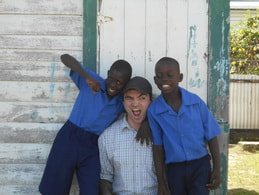 There is nothing easy about living in Guyana. Navigating the city streets of Georgetown is difficult, household chores need to be done more mindfully than in the United States, and even simple tasks like taking a shower or prepping to go to bed require more effort than I’m used to. Everything is just a little bit more difficult. Thankfully, as I’ve been adjusting to this new culture, country, and way of life over the past month and a half, I have had two saving graces that have kept everything in perspective. The first is my community of MVC volunteers who are experiencing the ups and downs of living in South America with me on a daily basis. The second is my job. No matter how difficult a single day may be, I’m always grateful to head to work. It serves as a constant reminder of why I’m in Guyana in the first place. I’ve been working for just over six weeks now at an orphanage for boys about fifteen minutes outside of the city of Georgetown in a small village called Plaisance. There are over fifty boys that live at the orphanage and about half of them attend the K-6 school on the grounds of the orphanage. Once the boys reach grade 7, they go to school at a secondary school in the next town over. I’ve been teaching the fifth grade class since my arrival and it has been…quite an experience. There are just a handful of boys in each grade. So, I spend my mornings and afternoons with three nine year olds and a thirteen year old who is repeating 5th grade for the second (or third?) time. They’re great kids, always keeping me on my toes. As the days have worn on, I’ve realized just how important the role I play in their lives is. Not to sound like a conceited fool, but the information that a fifth grade teacher dishes out to his/her students is essential stuff for life. For example, in the first few days of school, I’ve already taught the boys how to use quotations marks in Grammar class and how to do long division in Math class. When it comes to teaching vital lessons like these, I take the job very seriously. It’s fun to be able to teach something fundamental to little human beings, and it’s exhilarating to see them begin to understand it. On the flip side though, it’s slightly terrifying when you correct their homework and realize that they are still missing some of the basics. Alas, all part of the ups and downs of teaching. I’m learning really fast, I love being able to learn on the job. My classroom is a simple room with no walls between my room and the other classrooms in the school. All that separates each “classroom” from the next one over is a blackboard. I would have thought that it would take quite some time to get used to this way of teaching and learning, but I quickly grew used to staying focused on my classroom and the kids have been learning like this their whole lives, so they don’t even notice that there are five other lessons going on simultaneously with their lesson. The only time I have any issue with my four boys losing their focus is when the first graders are singing along with a cassette tape to an “Itsy Bitsy Spider” song that they all learned when they were in first grade. No matter how many times I try to coral them back into our lesson, they always feel the need to sing along with their six-year-old friends in the next classroom over. I have no materials to speak of to teach my students with, other than a few pieces of chalk and some outdated, tattered textbooks. Somehow though, it’s enough. Yes, it would be greatly beneficial to have a copier, pencils, crayons, notebooks or loose-leaf paper, but we make do with what we have. It takes a lot more creativity to teach a group of boys with nothing but chalk and my imagination than it would if I had a “Smart Board” and access to the Internet. I do find it humorous; however, that at the end of each day all four boys and I are always covered in chalk –our clothes, our faces, there’s no escaping it! At the end of each day I’m tired and I welcome the fact that Guyana’s close proximity to the equator means that the sun sets right around six o'clock each night. I think of it as the earth giving me permission to wind down and head to bed early. No matter the day, whether it’s Monday or Friday, I’m always exhausted by the time I’m arriving home. Thankfully, the tired feelings I experience are all just remnants of a good day’s work, in which I did a little teaching and, ironically, ended up learning so much more about life, love, and how the world works in the process. To learn more about Mercy Volunteer Corps, click here! Matthew Guiffre is a Mercy Volunteer Corps serving in Guyana South America. This post was originally written and posted on the Catholic Volunteer Network Blog. For more Catholic Volunteer Blog Posts please visit the CVN Blog Page. The Catholic Apostolate Center is proud to partner with the Catholic Volunteer Network by developing faith formation resources for volunteers and alumni, assisting in its efforts to provide and advocate for faith-based volunteerism and collaborate in many additional ways. “The word of God nourishes both evangelizers and those who are being evangelized so that each one may continue to grow in his or her Christian life” – National Directory of Catechesis Over the last 40 years, the United States Conference of Catholic Bishops (USCCB) has especially recognized the importance of catechists in the process of evangelization by reserving the third Sunday in September as “Catechetical Sunday.” Catechetical Sunday commemorates and celebrates the ministry of formal catechesis, which is the systematic teaching of the tenets of the Catholic faith in order to help others know more about God and his Church. This ministry has had a significant role in my life over the past four years and across two different dioceses. There is something amazing about trying to explain the Old Testament prophets to a group of 6th grade students, a majority of whom has never heard the likes of Jeremiah, Isaiah, Elijah, etc. I love seeing the excited faces of students that either know or are interested in the subject of my teaching, while the blank ones challenge me to find compelling ways to make the faith a living part of their lives. On Catechetical Sunday, parishes, including where I have served, have a particular ritual: before the recessional at the end of Mass, the celebrant asks all who are called to serve as catechists to stand and receive a blessing for their work throughout the year. This serves two purposes: it helps the catechist understand the importance of their teaching role in the parish and also serves as a moment of reflection for the rest of the congregation. The influence of a catechist on a young life cannot be understated. Below are a few tips I’ve learned throughout my time as a catechist that can help those interested in pursuing the ministry of catechetical formation.
Catechetical Sunday reminds us of our individual roles in the evangelization of the baptized. In our small way, my fellow catechists and I—men and women from all walks of life and individual faith journeys—try to sow the fruits of faith for the next generation of disciples. Pulling from my toolkit, I will leave you with a blessing for catechists: “Lord God, source of all wisdom and knowledge, you sent your Son, Jesus Christ, to live among us and to proclaim his message of faith, hope, and love to all nations. In your goodness bless our brothers and sisters who have offered themselves as catechists for your Church. Strengthen them with your gifts, that they may teach by word and by example the truth that comes from you.”
I have always admired Mother Teresa and her incredible mission, along with her reflective heart. I am so happy that I can now call upon her as St. Teresa of Calcutta, as she was just canonized on September 4, 2016! As I have studied and learned more about her, it seems as if St. Teresa of Calcutta would have dreaded knowing of her public canonization! She never wanted her writings or her work to bring attention to herself, but rather, she only desired to bring hearts to Jesus Christ. In her honor, I want to reflect on how her understanding of the world can bring our focus less on her and bring our hearts to Jesus. St. Teresa of Calcutta taught us that God is in every living thing. She wrote, “Seeking the face of God in everything, everyone, all the time, and his hand in every happening; This is what it means to be contemplative in the heart of the world. Seeing and adoring the presence of Jesus, especially in the lowly appearance of bread, and in the distressing disguise of the poor” (St. Teresa of Calcutta, In the Heart of the World: Thoughts, Stories and Prayers). Furthermore, St. Teresa of Calcutta taught us to seek Christ in every person we encounter. She recognized that each human being is created uniquely and beautifully. Each person is the face of God calling us to serve God by serving them. As Jesus said, “I was hungry and you gave me food, I was thirsty and you gave me drink, a stranger and you welcomed me, naked and you clothed me, ill and you cared for me, in prison and you visited me’” (Matthew 25:34-36). When we love through the corporal and spiritual works of mercy as St. Teresa of Calcutta did, we are better able to see God more clearly in others. Imitating Christ by practicing the works of mercy also invites us to and see him more clearly in the Eucharist. Receiving Jesus in the Eucharist was essential for St. Teresa of Calcutta, as she knew Jesus was the fuel to teach her how to love others better and bring more souls into God’s embrace. She recognized that Christ’s love lives on in his humility of becoming our Eucharistic food and in the hearts of the poor, which includes the physically, mentally, and spiritually poor. Bringing souls to Christ was a deep mission of St. Teresa of Calcutta. She consistently reflected over two of Jesus’ last words of his Passion – “I thirst” – and had them written next to the crucifixes in the chapels of the Missionaries of Charity (the religious order St. Teresa of Calcutta established in 1950) to remind her sisters that their mission was to satiate Christ’s thirsts for souls. When going to Jesus at the Cross, St. Teresa of Calcutta wanted us to feel his thirst and love for us. She believed that Christ wants us to rest in his love. St. Teresa of Calcutta left behind a deep legacy of letting the world know just how loved and treasured we are. Her message teaches us that God loves us deeply and thirsts for us. When we know we are deeply loved by God, we can endure any suffering because we know joy is possible in the midst of carrying our own crosses. St. Teresa of Calcutta felt the pain of Jesus’ Passion deeply in her work in the slums of Calcutta and in the contemplations of her heart. She witnessed suffering first-hand taking care of the poorest of the poor and also experienced feelings of desolation and dryness in the spiritual life. Throughout it all, her joy remained full and she devoutly loved the Lord. St. Teresa of Calcutta is a beautiful witness of the mystery of suffering with Christ joyfully. As we contemplate the great love, faith, and work of St. Teresa of Calcutta , we can pray with one of her favorite prayers: The Memorare. With such deep trust for God, she was consistently confident in the Lord’s ability to work miracles. Often, she prayed an “emergency novena,” praying nine Memorares in a row and a tenth in thanksgiving to God for a holy request. With confidence in our Lord, and thanksgiving for the testimony of St. Teresa of Calcutta, let us run to Jesus through Mary, that we may become steadfast in holiness, find joy in suffering, quench the thirst of Christ, and be confident in the good work that God is doing within us! Remember, O most gracious Virgin Mary, that never was it known that anyone who fled to thy protection, implored thy help, or sought thine intercession was left unaided. Inspired by this confidence, I fly unto thee, O Virgin of virgins, my mother; to thee do I come, before thee I stand, sinful and sorrowful. O Mother of the Word Incarnate, despise not my petitions, but in thy mercy hear and answer me. St. Teresa of Calcutta, pray for us! Alyce Shields is a teacher in Washington D.C.
|
Details
Archives
July 2024
Categories
All
|
About |
Media |
© COPYRIGHT 2024 | ALL RIGHTS RESERVED



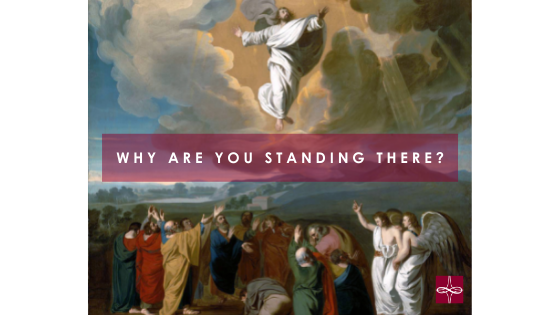



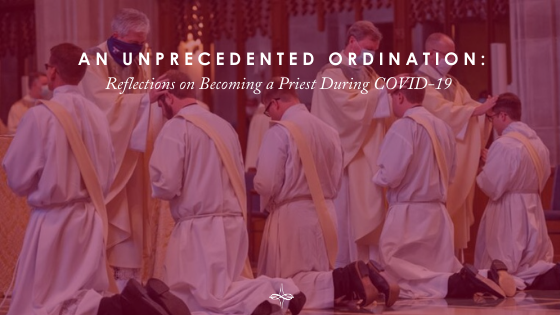
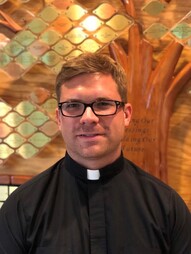
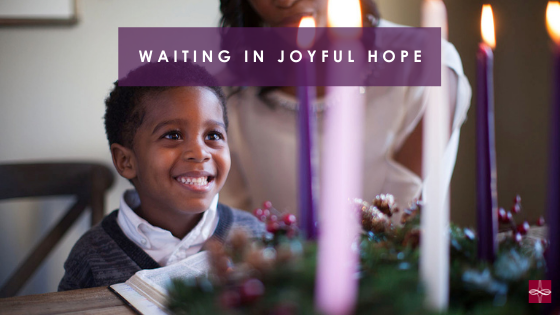

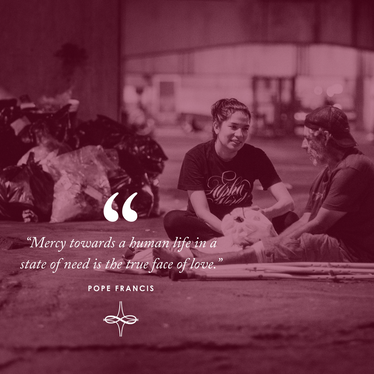
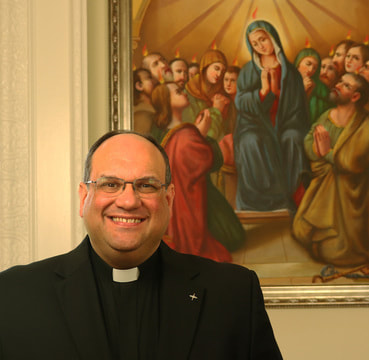
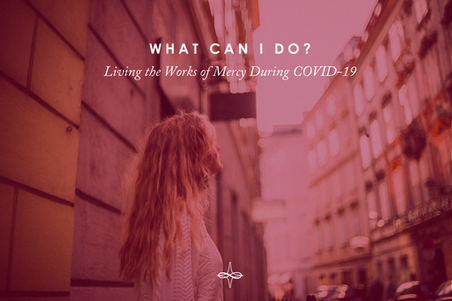

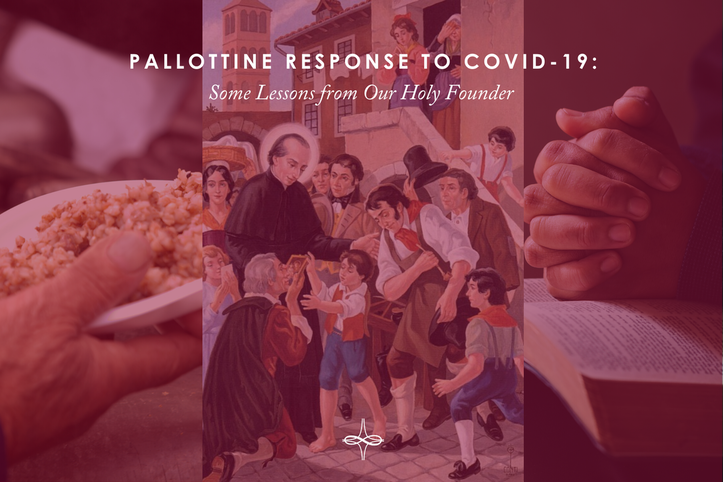
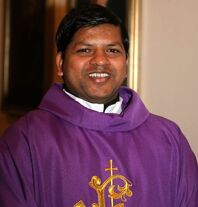
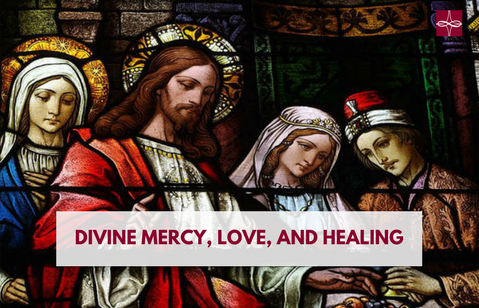



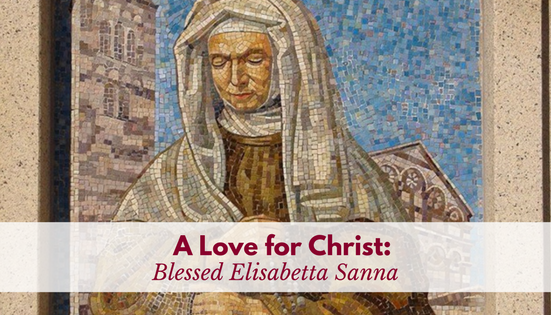

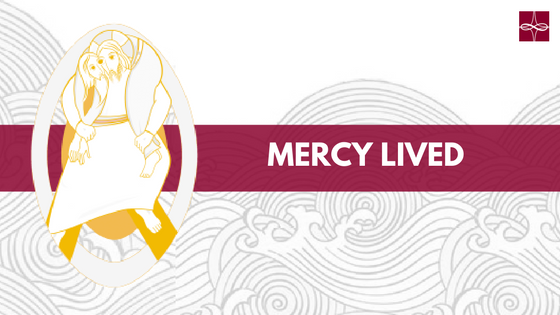
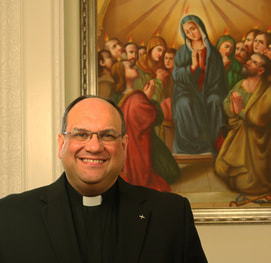

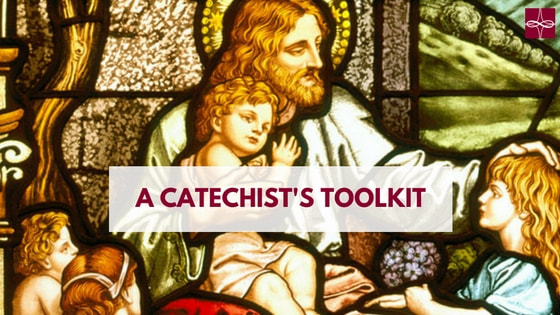

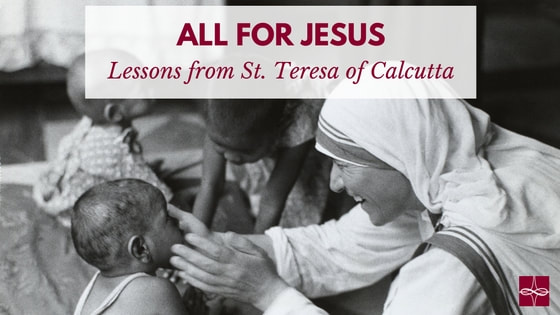
 RSS Feed
RSS Feed